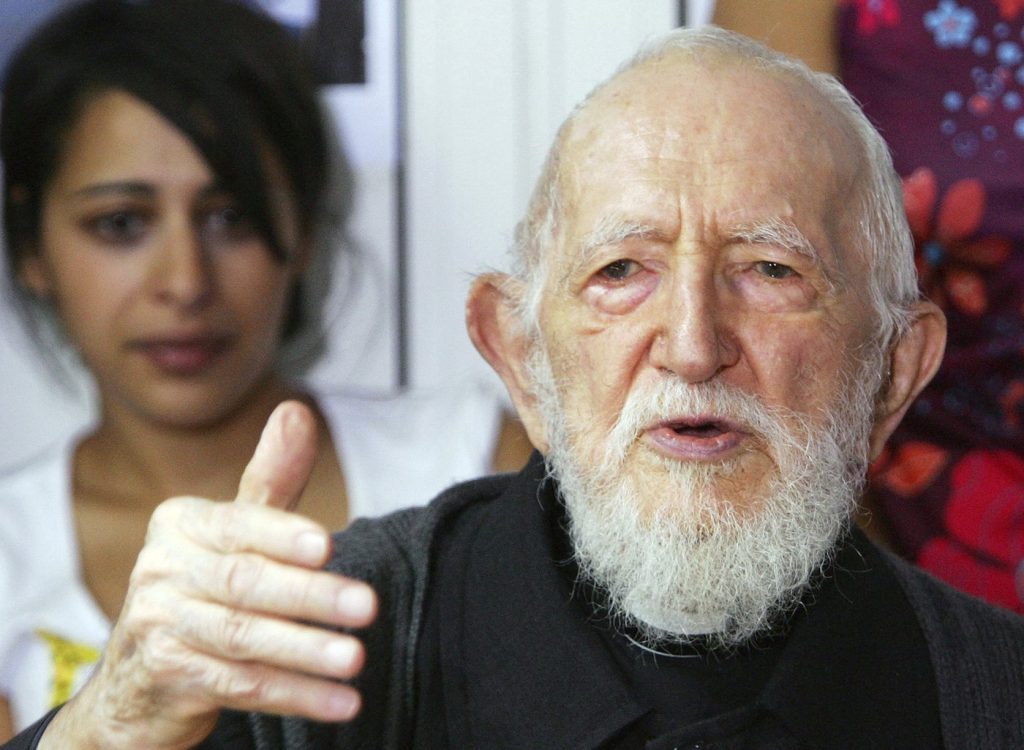PARIS (AP) – The French church has taken significant steps in addressing the past misconduct of Abbé Pierre, a well-known priest and humanitarian figure who passed away in 2007. Following recent disclosures of sexual violence, the church has formally requested that prosecutors initiate an investigation into his actions.
Archbishop Éric de Moulins-Beaufort, who serves as the president of the French Bishops' Conference (CEF), announced this initiative on Friday. He emphasized the need for transparency and thorough investigation in his statements to RMC radio. “We must get to the bottom of the truth – uncover any additional victims, accomplices, and failures to report these crimes,” de Moulins-Beaufort stated, acknowledging the gravity of the allegations.
Abbé Pierre, born Henri Grouès, earned recognition for his dedicated efforts to assist the less fortunate and for establishing the Emmaüs movement, which focuses on aiding the homeless and marginalized populations. However, his esteemed legacy is now marred by increasing accusations of sexual abuse. A recent report commissioned by Emmaüs revealed nine new allegations of sexual violence, including the distressing claim of the rape of a young boy. These new accusations have brought the total number of testimonies against Abbé Pierre to 33, with 57 potential victims identified across incidents reported from the 1960s to the 2000s.
The CEF issued a statement on the same day, underscoring the seriousness of the allegations while candidly acknowledging its historical shortcomings in addressing such matters. The statement articulated a commitment to judicial action aimed at uncovering not only the extent of the abuses but also the systemic failures that allowed them to occur. “The justice system has the necessary tools to uncover the complete truth about the silences and non-disclosures that may have shielded Abbé Pierre,” the CEF declared.
De Moulins-Beaufort revealed during his interview that concerns regarding Abbé Pierre's behavior had been flagged as early as the 1950s. He noted, “In the years 1955 to 1957, certain behaviors raised alarm. Attempts were made to limit his influence and send him to a clinic in Switzerland, but he managed to evade these measures.” This insight into the historical awareness of Abbé Pierre’s troubling conduct raises serious questions about the church's response at the time.
Recent revelations have emerged from two televised documentaries and reports prepared by the consulting firm Egae, which collectively paint a troubling picture of Abbé Pierre's alleged exploitation of his position and influence to perpetrate abuses against those who trusted him. “With each report, we cross another threshold in understanding what Abbé Pierre may have done and the system he seemed to have constructed,” de Moulins-Beaufort commented, highlighting the ongoing nature of the investigation.
In expressing solidarity with the victims, the CEF has encouraged individuals affected by Abbé Pierre’s actions to come forward. The church and Emmaüs have established dedicated hotlines to provide support to those who may have suffered abuse. This proactive stance is part of the church's response to a growing demand for accountability and justice regarding historical cases of misconduct within its ranks.
The emergence of these revelations surrounding Abbé Pierre not only raises significant concerns about individual accountability but also prompts broader discussions about the systemic issues within the church that may have allowed such abuses to remain hidden for decades.










